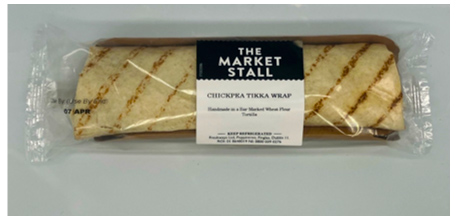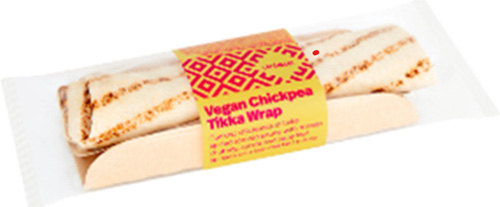The Food Safety Authority of Ireland (FSAI) today reported that ten Enforcement Orders were served on food businesses during the month of March.2024 for breaches of food safety legislation, pursuant to the FSAI Act, 1998 and the European Union (Official Controls in Relation to Food Legislation) Regulations, 2020. The Enforcement Orders were issued by Environmental Health Officers in the Health Service Executive (HSE).
One Closure Order was served under the FSAI Act, 1998 on:
- Le Chocolat de Frèd (Restaurant/ Café), 96 Georges Street Lower, Dun Laoghaire, Co. Dublin
Eight Closure Orders was served under the European Union (Official Controls in Relation to Food Legislation) Regulations, 2020 on:
- Babylon Kebab House (Restaurant/ Café) 92-93 Irishtown, Clonmel, Co. Tipperary. [Enforcement Report found HERE].
- Shangri La Asian Cuisine (Restaurant/ Café), Blackhorse Avenue, Cabra, Dublin 7
- Super Marios (Take Away), High Street, Tullamore, Offaly
- Kingdom of Sweets (Retailer), 15 Westmoreland Street, Dublin 2
- Royal Caterers (Service Sector), Unit 27C, Ashbourne Business Centre, Ballybin Road, Ashbourne, Meath
- Cork Oriental Supermarket (Closed area: Kitchen and kitchen storage area), (Restaurant/ Café), 13 Dalton’s Avenue, Cork
- Hilan Chinese and Korean BBQ Restaurant, 45 Capel Street, Dublin 1
- Munch Box (Restaurant/ Café), 1 Whitworth Road, Drumcondra, Dublin 9
One Prohibition Order was served under the European Union (Official Controls in Relation to Food Legislation) Regulations, 2020 on:
- Hilan Chinese and Korean BBQ Restaurant, 45 Capel Street, Dublin 1.
Some of the reasons for the Enforcement Orders in March include: Storage of bags of beef, fish and unlabelled unidentified meats and chicken in the freezer and the walk-in fridge for an unknown duration and with no traceability; presence of fresh rat droppings; evidence of a lack of adequate and regular cleaning throughout the premises; continuous failure to maintain consistent cleaning standards; persistent and recurring failure to comply with food safety legislation; overflow of foul water into the food preparation area; absence of adequate training/instruction of food workers; absence of complete and accurate documented food allergen information; dirt and food debris on walls, floors, doors, touch points, equipment, fridges, freezers, surfaces, and food storage containers in the kitchen; lack of food safety knowledge and training.
Dr Pamela Byrne, (Chief Executive, FSAI), said that breaches of food safety legislation pose a real danger to consumer health.
“March saw a high number of Enforcement Orders and some of the reasons listed demonstrate totally inadequate hygiene standards. Consumers have a right to safe food and this legal obligation sits with the food business operators. These food businesses are damaging the reputation of the food industry as a whole and can impact the trust that consumers have in the food they eat. Environmental Health Officers, who inspect these food businesses, continue to encounter cases where consumers’ health is put at risk particularly through a failure to comply with hygiene requirements, pest control and food safety training requirements, which is unacceptable,” Dr Byrne concluded.
The FSAI also announced today that it is hosting a ‘Breakfast Bite’ free webinar on April 25th, which will look at food safety training requirements and will provide tips and ideas on how food businesses can meet their food safety training needs. Register for this free webinar HERE.
Details of the food businesses served with Enforcement Orders are published on the FSAI’s website. Closure Orders and Improvement Orders will remain listed in the enforcement reports on the website for a period of three months from the date of when a premises is adjudged to have corrected its food safety issue, with Prohibition Orders being listed for a period of one month from the date the Order was lifted.






Recent Comments